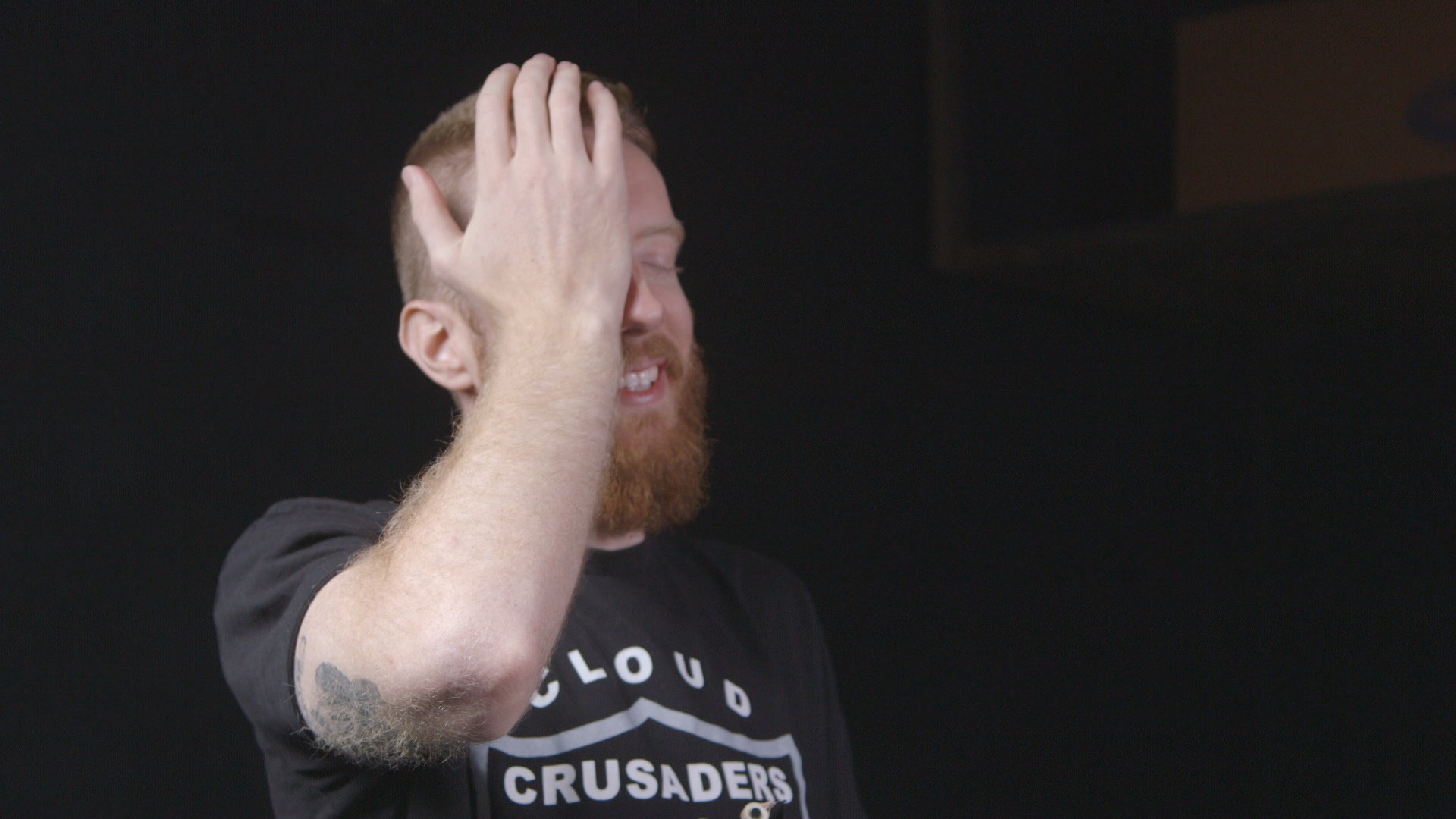
Advertisement
The materials for highly-unscientific study. Photo by Kaleigh Rogers
Advertisement
An ice cream headache strikes Managing Editor Adrianne Jeffries.
Advertisement



Editor-in-Chief Derek Mead tries to warm up his brain manually.
Advertisement
